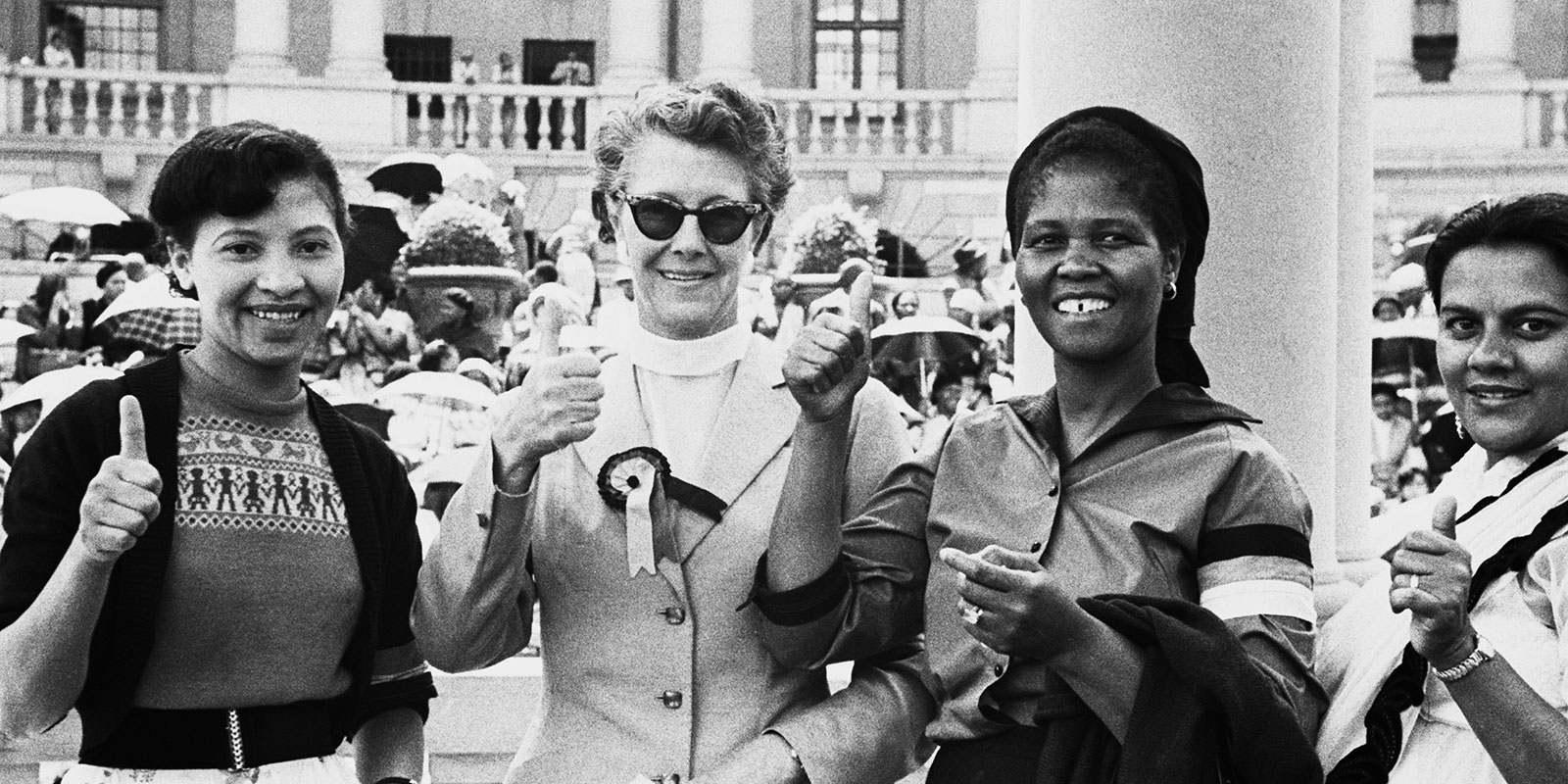I believe that the current generation has an opportunity to redefine its mission by using the hard-won victories of all our mothers. Now, 64 years after that historic march and as we face COVID-19 and its far-reaching impacts, the programmes and aspirations for women’s equality are being shaken to their core as we see the unfair burden that the pandemic is placing on women’s health, social and economic well-being. COVID-19 has unveiled and amplified the fault lines of inequality across our society. So, just as we inherited our struggle from the giants of women’s rights activism before us to call for political freedom and emancipation, a younger generation of women – in South Africa, Africa and beyond – has to respond to a different struggle: against the COVID-19 health pandemic and the pandemic of gender inequality.
At the time of the Women’s March, I was 19 years old and part of the youth in our struggle. However, we soon understood the power and value of intergenerational alliances in pursuing and defending our mission for political inclusion, and against the oppression of race, class and gender. Our mobilisation strategies were devoid of the technological advances now at the disposal of the younger generation of women to cultivate ever more meaningful partnerships. It is my hope that the present generation will not merely maintain the gains; despite the challenge, this generation has an obligation to quantumly advance the struggle for women’s rights.
I am honoured that my generation’s efforts were not in vain. I felt a lump in my throat on 9 August 1956 when I looked at that large army of women: dignified women, courageous women – and I continue to be humbled to have been part of such bravery. When I look at the gains in South Africa, I am proud of the progress we women have made. However, I am very aware that much more is needed.
Just as we inherited our struggle from the giants of women’s rights activism before us to call for political freedom and emancipation, a younger generation of women has to respond to a different struggle: against the COVID-19 health pandemic and the pandemic of gender inequality – Sophia de Bruyn
Tweet
South Africa’s Constitution sets out gender equality as a founding principle and, in 2013, the South African government passed the Women Empowerment and Gender Equality Bill, which calls for 50% representation in decision-making positions. In 2019, the government saw the highest representation of women in parliament (46%), as well as the highest representation of women Members of the Provincial Legislature (MPLs) (46%). Also in 2019, the country’s Cabinet had a 50% balance in terms of representation between men and women for the first time.
In the context of COVID-19, I have been saddened to see the high levels of domestic and gender-based violence – some of the unintended consequences of the preventive measures put in place by governments across the world to flatten the curve of infections. This is my message of solidarity, and I urge the current generation of women to be resolute about our new struggles and to protect the gains made by the generations that preceded mine, as well as the advances my generation made. I have often said, “The younger generation needs to pick up where the older generation has left off.” Therefore, younger women are encouraged to pick up the baton to lead today’s challenges. They must learn from my generation’s efforts and that of the generations before mine. But in saying this, I believe that the baton which today’s generation of women need to take forward is that of economic emancipation. Economic emancipation will futureproof our gains in gender equality, political participation and lives free from violence, and must be at the centre of efforts to shape the future generation of women leaders and activists.
I believe that the COVID-19 pandemic has laid bare women’s vulnerabilities in times of crisis, and our failure to achieve and advance economic emancipation is at the centre of some of the pushback we are seeing. This is especially true for women working as domestic workers and in the informal sector. In South Africa, for example, women make up 68% of street vendors or informal traders, but due to the COVID-19 pandemic, they have been unable to work and have been left without any financial support. Without economic freedom, women will continue to be vulnerable to exploitation, abuse and inequality.
Today, as I reflect on the momentous 9 August 1956 march to the Union Buildings in South Africa, I know that our generation made an indelible contribution to women’s political inclusion and women’s rights. What will today’s generation claim? The baton has been passed on…
Sophia Theresa Williams-De Bruyn is a veteran anti-apartheid activist who was one of the organizers and leaders of the 1958 South African Women’s March to the Union Buildings. She is a former Member of Parliament (MP), and a Former Commissioner of Gender Equality in the Gauteng Provincial Legislature.

